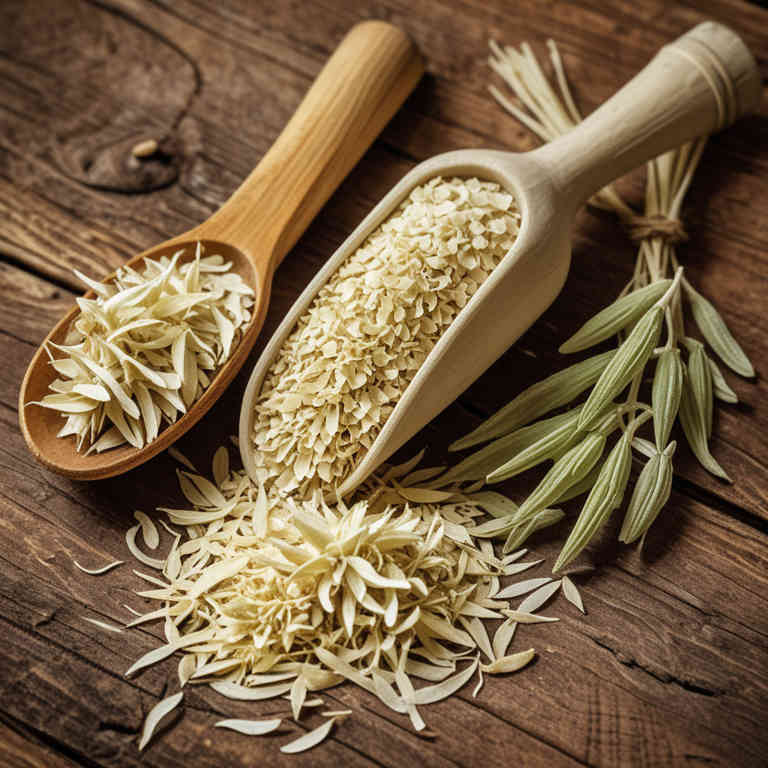Trigonella foenum-graecum mucillage for medicinal use

Trigonella foenum-graecum mucillage is a viscous substance derived from the seeds of the fenugreek plant, commonly used in traditional herbal medicine.
This preparation is known for its demulcent properties, which help soothe irritated tissues in the digestive tract. It is often used to alleviate symptoms of indigestion, inflammation, and gastrointestinal discomfort. In herbalism, it may also be applied externally to treat skin irritations or as a poultice.
Its mucilage content provides a protective layer that can aid in healing and reducing inflammation.
Uses
Trigonella foenum-graecum mucillage has been used to treat digestive ailments and as a general tonic in traditional medicine systems such as Ayurveda and ancient Greek practices.
Historically, it was valued for its ability to soothe the gastrointestinal tract and was often consumed as a paste or decoction. In modern times, research has shown that the mucilage may have prebiotic properties, supporting gut health and immune function. It is also being explored for its potential anti-inflammatory and antioxidant effects.
Today, it is used in herbal formulations to aid digestion and promote overall wellness.
Benefits
Trigonella foenum-graecum mucillage has health benefits such as supporting digestive health, reducing inflammation, and promoting skin health.
This herbal preparation is rich in mucilage, which can help soothe the lining of the stomach and intestines, making it beneficial for individuals with gastrointestinal issues. It may also aid in lowering blood sugar levels and improving insulin sensitivity, which is valuable for managing diabetes. Additionally, the mucilage has emollient properties that can help moisturize and protect the skin from irritation and dryness.
Overall, Trigonella foenum-graecum mucilage is a versatile natural remedy with potential therapeutic applications in various health conditions.
Constituents
Trigonella foenum-graecum mucillage active constituents include mucilage, flavonoids, saponins, alkaloids, and polysaccharides.
These components contribute to its traditional use in supporting digestive health and reducing inflammation. The mucilage forms a protective layer in the gastrointestinal tract, aiding in soothing irritation and promoting regular bowel movements. Flavonoids and alkaloids may help in managing oxidative stress and improving immune function.
Saponins are known for their potential cholesterol-lowering effects and anti-inflammatory properties.
Preparation
To make Trigonella foenum-graecum mucillage, begin by gathering high-quality fenugreek seeds.
Soak the seeds in water for 8 to 12 hours to allow them to absorb moisture and release their mucilage. After soaking, strain the mixture through a fine mesh or cheesecloth to separate the liquid mucilage from the solid residue. The resulting mucilage can be used as is or further concentrated by simmering gently over low heat.
This preparation is valued for its soothing properties and is often used in traditional medicine for digestive and respiratory support.
Side Effects
Trigonella foenum-graecum mucillage may lead to gastrointestinal discomfort, including bloating, nausea, and diarrhea, due to its high mucilage content.
This preparation can also cause allergic reactions in individuals sensitive to legumes, manifesting as skin rashes, itching, or respiratory symptoms. Prolonged use may contribute to digestive sluggishness or interfere with nutrient absorption. In some cases, excessive consumption might lead to a feeling of fullness or heaviness in the abdomen.
It is advisable to consult a healthcare professional before using this preparation, especially for individuals with pre-existing digestive conditions or allergies.